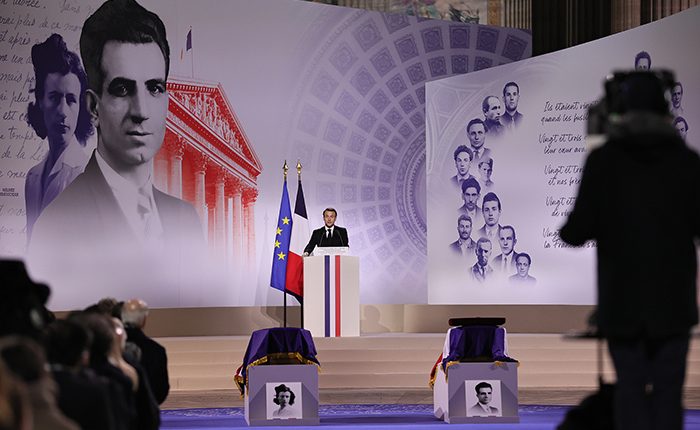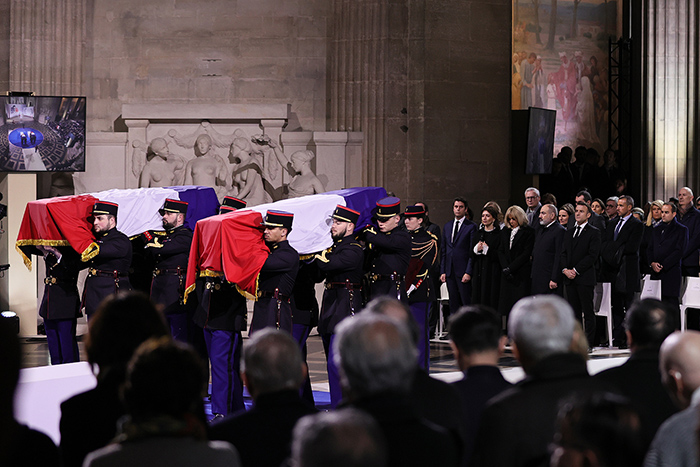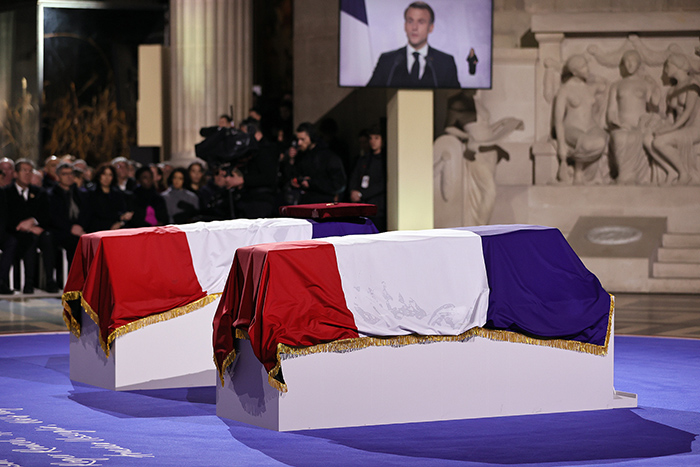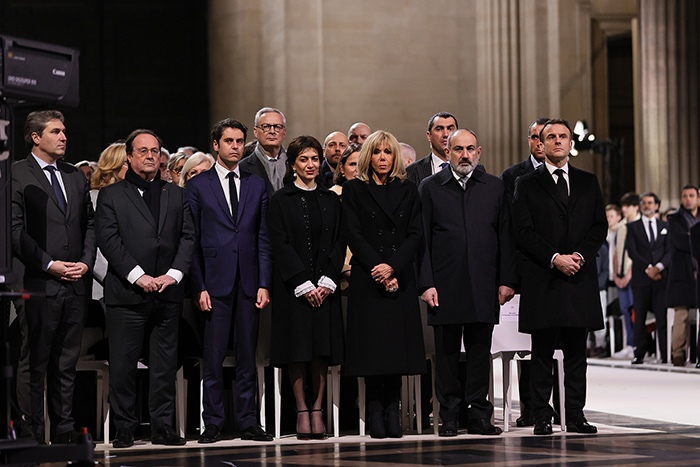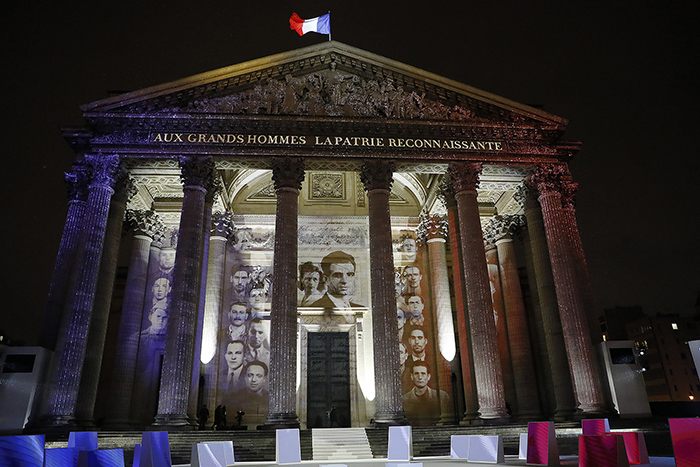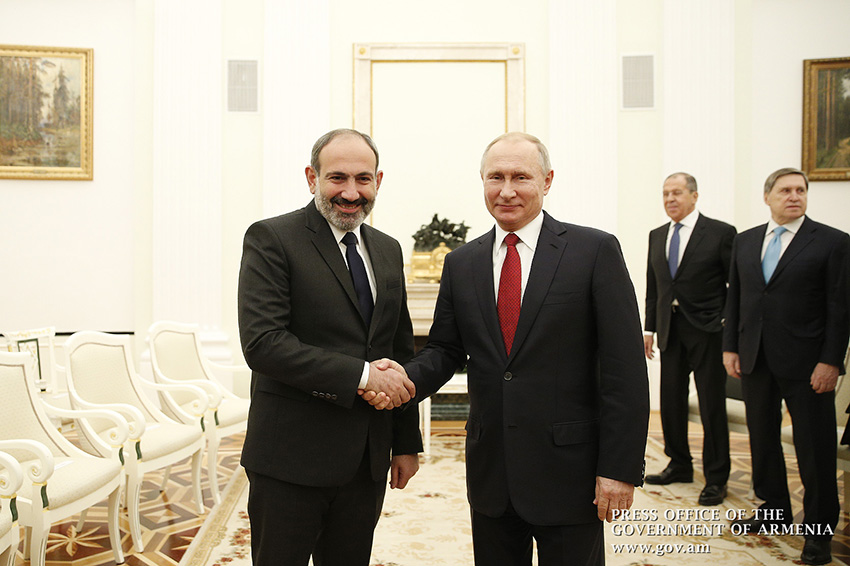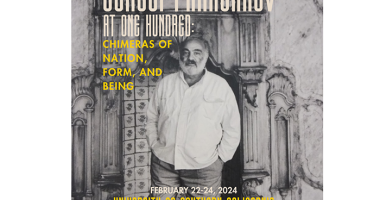‘A grateful France welcomes you, Missak and Mélinée,’ – Macron
PARIS — French President Emmanuel Macron led a ceremony Wednesday honouring Missak Manouchian and his wife Mélinée in Paris on February 21. Manouchian a stateless poet of Armenian origin died fighting the Nazi occupation during World War II. His induction in the Panthéon mausoleum in Paris alongside other French national heroes is seen as a tribute to all the foreign fighters who joined the Resistance.
Prime Minister of Armenia Nikol Pashinyan and his wife Anna Hakobyan, together with other Armenian government officials also attended the event as guests of honor.
At the solemn ceremony in the majestic Panthéon building , President Emmanuel Macron paid tribute to the memory of Missak Manouchian and his wife.
The names of 23 of Manouchian’s fellow Resistance fighters, most of whom were shot with him on February 21, 1944, will be engraved in the vault where the couple was laid to rest.
“A grateful France welcomes you, Missak and Mélinée,” said Macron at a ceremony held exactly 80 years after they were killed. “The France of 2024 owes you this honour.”
Macron said that Manouchian “embodies the universal values” of France and “carries a part of our greatness.”
Members of the French foreign legion carried the coffins of Manouchian and his wife, draped in French flags into the secular temple.
Born in 1906 in the then-Ottoman empire, Manouchian lost both his parents during the Genocide of 1.5 million Armenians by Ottoman Turks in 1915-1916.
He was sent to an orphanage in Lebanon, then a French protectorate, where he discovered French language and culture.
He came to France in 1924. Living in Paris, he wrote poetry and took literature and philosophy classes at the Sorbonne University — while working in factories and doing other odd jobs.
He joined the communist party in the early 1930s within the MOI (Immigrant Workforce Movement) group and became editor-in-chief of a newspaper for the Armenian community.
During World War II, he joined the French Resistance as a political activist with the then-underground MOI group.
In 1943, he became a military chief in the armed organization of the communist party, the FTP-MOI group of about 60 Resistance fighters that gathered many foreigners from Armenia, Hungary, Poland, Romania, Bulgaria, Italy and Spain, including many Jewish people.
Manouchian is the first foreign and first communist Resistance fighter to be inducted into the Panthéon.
His group led dozens of anti-Nazi attacks and sabotage operations in and around Paris between August and November 1943, including the assassination of a top German colonel.
Tracked down by the French police of the Vichy regime that collaborated with Nazi Germany, Manouchian was arrested on Nov. 16, 1943 along with most of the group’s members. He was sentenced to death in Feb. 1944.
Nazi propaganda officers ordered a poster to be made with the photos and names of 10 Resistance fighters, including Manouchian, displayed in Paris and other French cities.
The so-called “Red Poster” sought to discredit them as Jews, foreigners and criminals, and Manouchian was obviously the first target. Yet the campaign didn’t convince the French population.The poster, while aiming to present them as assassins, made them heroes.
In his last letter to his wife, Manouchian wrote: “At the moment of death, I proclaim that I have no hatred for the German people … The German people, and all other people will live in peace and brotherhood after the war.”
French poet Louis Aragon wrote a poem in 1955 inspired by the letter that singer Léo Ferré set to music under the title “L’Affiche Rouge” (“The Red Poster”), keeping the memory alive and making the song a French standard.
During Wednesday’s ceremony, French rock band Feu! Chatterton performed the song, while a big reproduction of the Red Poster was set up in front of the Panthéon.
A lighting show on the monument’s facade recounted Manouchian’s life. The homage also included touching excerpts from his letters and notebooks.

